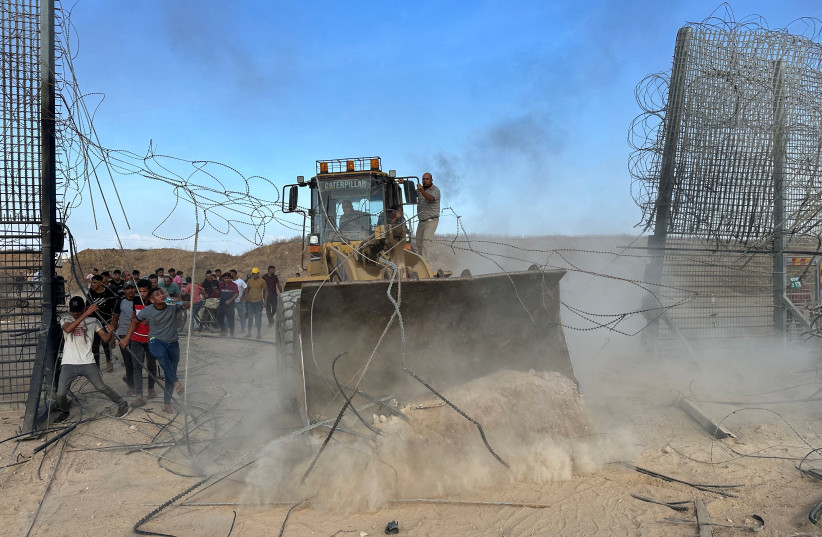The IDF will issue its first interim report on the October 7 failure to prevent Hamas’s invasion of southern Israel toward summer, possibly as early as May-June.
For some months, the IDF has been holding discussions on the probe. The investigations are due to kick into full gear by the start of March.
The interim report will be internal, focus on operational issues, and is expected to be issued within about three months – around June.
As of now, a planned external review to be led by former IDF chief of staff Shaul Mofaz and former IDF intelligence chief Aharon Zeevi Farkash has been indefinitely postponed. This followed intense criticism levied against the military by Prime Minister Benjamin Netanyahu, and also without backing from Defense Minister Yoav Gallant.
Netanyahu has opposed probes into his role in the October 7 failure
Netanyahu has opposed any probe into his role as prime minister in the October 7 failure, as well as any attempt to advance elections, saying instead that the government should remain until 2026, when elections are due.

Although the IDF still wants an eventual external review, it has acknowledged that it might want different people to conduct it.
State Comptroller Matanyahu Englman, on the other side of the aisle, has been trying for around a month to get the military to agree to an external and broad review – by his office.
This is a review that Netanyahu has not objected to. Englman has, in general, supported Netanyahu on sensitive issues, including those relating to disputes about how the prime minister paid his legal bills for his public corruption trial. Much of the media, opposition, and IDF have opposed it.
IDF Chief of Staff Lt.-Gen. Herzi Halevi has objected to an external probe of this magnitude, arguing that it would disrupt the military’s fighting capabilities. He suggested that Englman wait until the major security issues on both fronts were resolved.
Englman doubled down, arguing that the war was taking so long that the probe could not be further delayed. The two met last month to attempt to arrive at an understanding as to the timing of the probe, but still have serious disagreements between them.
Since Netanyahu opposes a state commission of inquiry and it is unclear when he will approve one, the only major probe and report might be by mid-2024.
Despite Netanyahu’s current success at thwarting questions about his responsibility, if top military officials like Halevi or current IDF Intelligence Chief Maj.-Gen. Aharon Haliva or Shin Bet Director Ronen Bar resigned in a show of responsibility following the IDF interim report; the pressure might overwhelm Netanyahu.
The announcement of the probe was made to the media mere hours before the military published a letter from Halevi addressed to the entire military apparatus, focusing on the impending probe. In that letter, Halevi tried to reassure his senior officers, many of whose careers may be ended, sidelined, or slowed by the probe, about their future.
He noted that it was unusual that the probe was beginning – as the war was still being fought.
However, he explained that a probe “is a necessity, and is not a privilege. Only by doing this will we be able to understand how we should conduct ourselves to defend Israel better,” both about October 7 and the next war.
Halevi added that every unit would probe all of the battles it participated in, and each level of officer would probe those under their command.
The IDF chief said that the process for the probe would be to first arrive at a factual consensus understanding of what occurred to date. In the next stage, the military will move toward deriving conclusions and learning lessons for the future.
Halevi’s tone seemed intended to calm his officer corps and keep them as focused as possible while the battles were still being fought.
